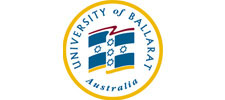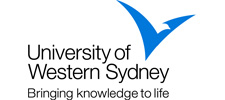New Zealand
Study in New Zealand
Combining the benefits of a developed country with the charm of a quiet and peaceful countryside, New Zealand offers some distinct advantages over other countries as a destination for education.
An important one of which is the affordability – getting a degree in NZ actually works out to be cheaper than many courses in India.
Another significant advantage is the welcoming nature of the New Zealanders and the relative ease in getting there : NZ has recently opened its doors to students from South East Asia. Getting yourself an education in New Zealand can change your life forever – this site tells you how you can do it.
Life in New Zealand
New Zealand is a beautiful and sparsely populated multicultural nation with a population of approximately 3.5 million people. Most New Zealanders are of British or European descent, with approximately 18% of the population having Maori or Pacific Island origins. There are also large numbers of other nationalities in New Zealand and recently, increasing numbers of people from Asian countries have taken up residence in New Zealand.
The dramatic and varied landscapes draw visitors from all over the world. There are high snow-clad mountains, fiords, large forests, lakes, lush plains, surf beaches and quiet coastal inlets. In New Zealand the tourist and recreational areas are often only one or two hours' drive from major cities and can be accessed without great expense.
Most visitors find New Zealanders friendly, easy-going people who are interested in meeting those from other cultures and in travelling overseas. NZ is a very sports-oriented country, most New Zealanders take part in or watch a wide variety of games. The best known sports are rugby and cricket, with netball, badminton, squash, skiing, tennis, basketball, athletics, soccer, and hockey also very popular.
New Zealand's major export products include fish, meat, fruit, dairy products and timber. It also produces a wide range of manufactured goods and is at the forefront in many areas of information technology and in biological and medical research. Tourism and education are also becoming increasingly important to the economy.
CURRENCY
The New Zealand dollar is a stable currency. Tourists and new residents find a very favourable exchange rate which gives them high purchasing power.
RELIGION
Freedom of worship is guaranteed by law in New Zealand. During their time in New Zealand many international students choose to join a students' association to remain close to their culture and religion.
TRANSPORT
You will arrive in New Zealand at either Auckland or Christchurch International Airports. There are regular direct flights to most cities from both airports. There are air, rail and bus services to other towns and cities and an inter-island ferry operates between the North and South Islands.
ACADEMIC YEAR
The University academic year of most universities is divided into two semesters.
Semester 1 Late February - end June
Semester 2 Early July - mid November
Almost all undergraduate degree courses must be commenced with Semester 1. For more details of the academic calendar, contact the respective university.
ORIENTATION
Before the beginning of the academic year, the International Office of most universities runs an orientation programme for international students.
This programme covers such things as course advice, a tour of the campus and information about living in New Zealand.
The orientation programme is free and provides an excellent opportunity to meet other students and make new friends. Another orientation programme is run at the beginning of the second semester.
Both orientation programmes provide
- Information about the New Zealand way of life including their customs, climate and education system.
- Information about the University including its student services, facilities, policies and procedures.
- An opportunity to meet other international students.
- Information about your rights as a student.
- Information about immigration requirements and regulations.
International Students Issues
If you are applying from overseas to study as a full fee student in New Zealand, you can consult the New Zealand government office in your country about available courses. Applications should be made directly to educational institutions.
Closing date for applications to polytechnics and colleges of education are available from prospectuses of the respective institutions. The application form must also be accompanied by all the documentation requested on the form, for example, certified copies of examination results.
If you are applying for admission to a tertiary institution as a full-fee student and you are already attending a New Zealand school, apply directly to the university, polytechnic, college of education or other institution of your choice.
Once you have been offered a place
All applicants must accept and offer by the date specified on the notification letter received from an institution. An offer of a place does not necessarily guarantee a student visa.
Working While You Study
If you are studying in New Zealand, you must not work unless allowed to do so by the New Zealand Immigration service. You can be granted permission to work for upto 15 hours a week.
If you have a student permit, you may be granted a work permit or a variation of your student permit to allow you to gain practical experience on completion of a three-year course, or over the summer vacation.
Your Dependants
Your dependants, who may include a spouse, de facto spouse, fiancé(e) and children, may accompany you to New Zealand or may join you later. They must apply for the type of visa required, that is, visitor, work or student. For school aged dependants you will need to pay full fees to enroll them in primary and secondary courses.
Immigration Requirements
International students are required to obtain student visas and study permits in order to study in New Zealand.
For More Details, see our Student Visa section.
Medical Insurance
It is compulsory for students to take out full medical insurance cover. An average medical insurance cover for a single student would cost approximately NZ$500-600 per year. The Research & International Office holds information on New Zealand medical insurance companies which can be forwarded on request.
International Students' Representative
Students elect an International Students' Representative each year. His/her role is to act as a link between international students, the University and University Students' Association.
New Zealand Student Visa Information
If you are not already in New Zealand and are applying to New Zealand to study, you must complete the requirements for the issue of a student visa.
You will be given the required forms by the New Zealand Government office (the visa issuing officer) in your country. Requirements for a student visa will normally include :
-
VERY IMPORTANT : A written offer of a place, which notifies you that you have been accepted by an educational institution in New Zealand to study there.
-
EITHER - A receipt for payment of course fees (You are not required to produce the receipt before your application has been approved in principle)
OR - Evidence that you are exempt from course fees. For e.g. A New Zealand Government Scholarship. -
A complete and signed ‘Application for Student Visa' form, with a passport-size photograph. You will be required to pay a non-refundable student visa application fee.
-
A guarantee of accommodation - a written assurance from an educational institution or other person that suitable residential accommodation is available to you in New Zealand.
-
Your passport or certificate of identity, which must be valid for the period of time for which you are applying to study.
- Evidence that funds are available for your maintenance throughout your stay. One of the four is acceptable as evidence :
-
A completed ‘Sponsoring a student' form, in which your sponsor gives a financial undertaking that he or she can transfer to New Zealand NZ $7,000 a year : this amount is considered minimum for a year's living expenses.
-
A letter from your educational institution confirming that your living expenses have already been paid for as part of your fees.
-
A bank document showing that funds of the required amount will be available to you in New Zealand ($1000 for each month of your stay for short term study, $7000 a year for long term study)
-
An award of a full New Zealand scholarship.







 Study In
Study In